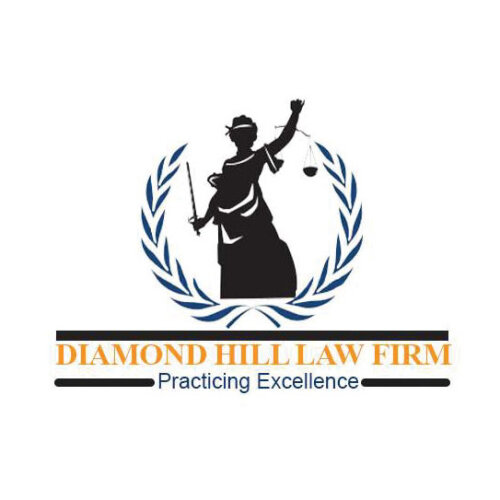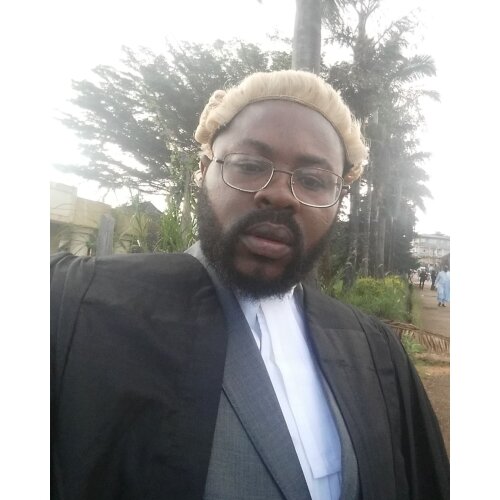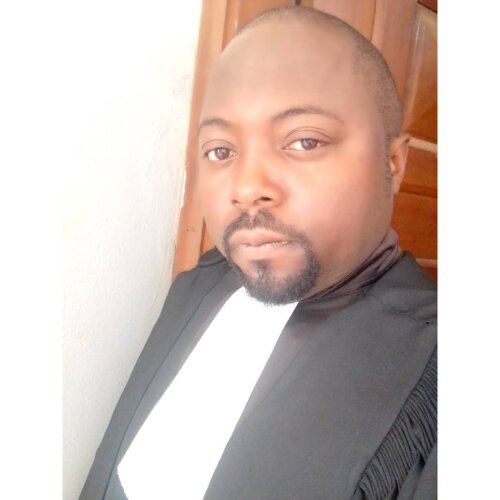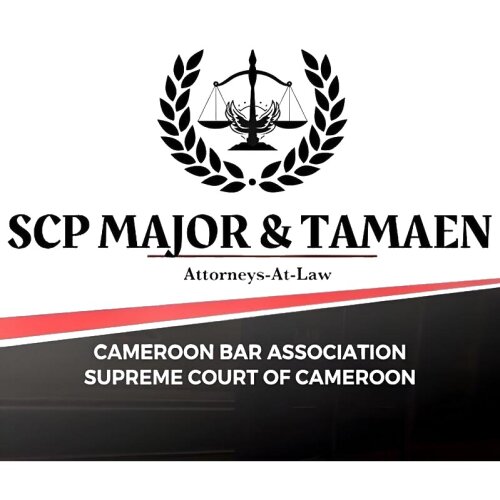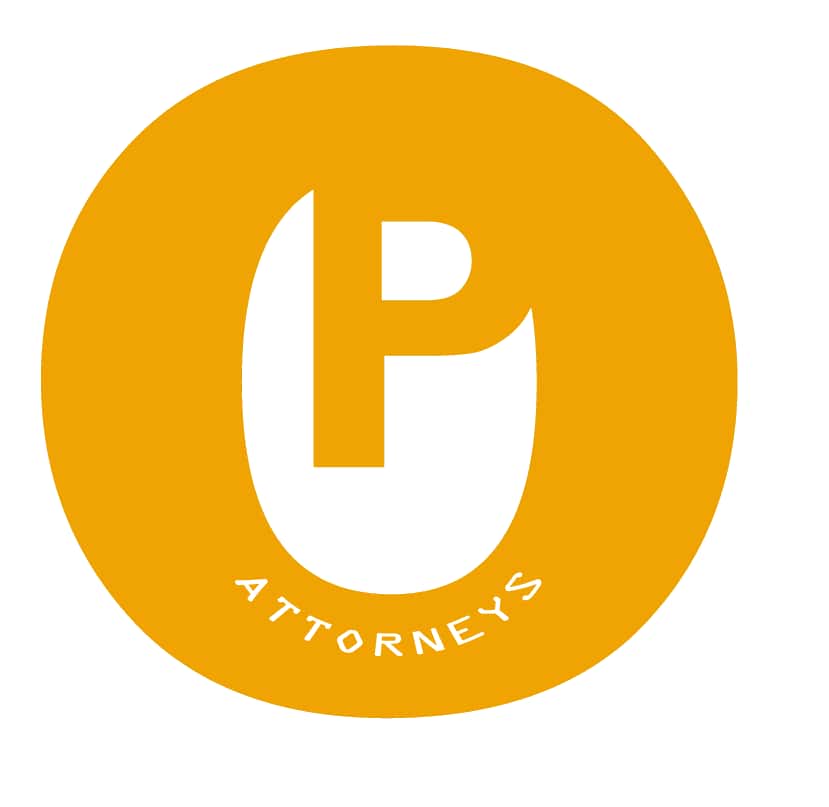Best Climate Change Law Lawyers in Cameroon
Share your needs with us, get contacted by law firms.
Free. Takes 2 min.
Or refine your search by selecting a city:
List of the best lawyers in Cameroon
Legal guides written by CHI & Partners Law Firm:
- Ship Registration in Cameroon
About Climate Change Law in Cameroon
Climate Change Law in Cameroon encompasses the legal frameworks, policies, and regulations aimed at addressing the causes and consequences of climate change. This area of law governs actions related to environmental protection, reduction of greenhouse gas emissions, adaptation to climate impacts, sustainable development, and the fulfillment of international commitments such as the Paris Agreement. With increasing awareness of environmental issues, Cameroon has adopted various legal instruments and implemented programs to mitigate and adapt to the effects of climate change. The law aims to balance economic development with environmental sustainability, ensuring a healthy environment for current and future generations.
Why You May Need a Lawyer
You might require the expertise of a lawyer specializing in Climate Change Law in several scenarios:
- If you are a business or developer seeking guidance on compliance with environmental permit requirements, emission standards, or environmental impact assessments.
- If your community or property is affected by environmental harm, pollution, or changes in climate-related policies, and you wish to pursue legal remedies.
- If you are involved in land use or forestry and need advice on carbon credits, reforestation obligations, or participation in climate adaptation projects.
- If you are a non-governmental organization (NGO) or activist advocating for stronger climate action, legal counsel can help ensure that your activities are lawful and effective.
- If you are navigating government contracts, grants, or international funding linked to climate or environmental programs.
- If you are facing sanctions or disputes over non-compliance with environmental regulations.
Local Laws Overview
In Cameroon, Climate Change Law is shaped by both national legislation and international agreements to which Cameroon is a party. Some key legal aspects include:
- The Constitution of Cameroon recognizes the right of every individual to a healthy environment and places obligations on the state to protect natural resources.
- Framework Law No 96/12 of August 1996 relates to Environmental Management, setting out basic principles and administrative structures for environmental protection.
- Sector-specific laws regulate water, forestry, wildlife, land use, and waste management, all of which intersect with climate change mitigation and adaptation efforts.
- National Adaptation Plan to Climate Change (NAP) guides the country’s adaptation strategies across sectors such as agriculture, water resources, health, and infrastructure.
- Commitments under the United Nations Framework Convention on Climate Change (UNFCCC) and the Paris Agreement shape policies and regulatory responses at the national level.
- Environmental Impact Assessments (EIA) are mandatory for certain developments, ensuring climate risks and environmental consequences are considered in project planning.
Cameroon is also advancing policies to promote renewable energy, sustainable forest management, and community-based climate actions, guided by its Vision 2035 development plan.
Frequently Asked Questions
What is Climate Change Law?
Climate Change Law refers to legal measures and policies designed to address climate-related challenges, including mitigation of emissions, adaptation to changing environmental conditions, and legal compliance with both national and international climate obligations.
Who enforces climate change laws in Cameroon?
Enforcement is primarily handled by the Ministry of Environment, Nature Protection and Sustainable Development, supported by local authorities, law enforcement agencies, and the judiciary.
Do I need a permit for a project that might affect the environment?
Yes, most projects likely to have environmental impacts require conducting an Environmental Impact Assessment and obtaining permits in accordance with the Framework Law of 1996 and subsequent regulations.
What are my rights if an industrial activity is polluting my community?
You have the right to report the issue to relevant authorities, seek legal remedies, and in some cases, bring a lawsuit against offenders under environmental protection laws.
How does Cameroon fulfill its international climate commitments?
Cameroon implements various policies, projects, and legislative measures aligned with its obligations under the UNFCCC, the Paris Agreement, and regional agreements.
What penalties exist for failing to comply with climate change laws?
Penalties may include fines, suspension of permits, closure of non-compliant activities, and in severe cases, imprisonment as set forth in environmental and sector-specific statutes.
Are there incentives for companies adopting green technology?
Yes, Cameroon offers incentives such as tax reductions, grants, and technical assistance for businesses investing in renewable energy, energy efficiency, and clean development projects.
How do I participate in climate-related consultations or decision-making?
Many policies require public participation. You can attend public hearings, submit comments during consultations, or work with community and environmental groups to make your voice heard.
What role do traditional and local communities play in climate law?
Traditional and local communities are recognized as key stakeholders in environmental management and climate adaptation. Specific laws provide for consultation and involvement in projects affecting their environment and livelihoods.
Where can I find up-to-date environmental and climate laws?
You can access relevant laws through the official government gazette, Ministry of Environment, and legal databases operated by academic and development institutions.
Additional Resources
If you need more information or assistance, the following resources can be helpful:
- Ministry of Environment, Nature Protection and Sustainable Development - The main government body responsible for climate change policy and enforcement.
- Cameroon National Assembly - Provides access to environmental legislation and parliamentary debates on climate matters.
- Local NGOs such as Centre for Environment and Development (CED) and Cameroon Climate Change Working Group - Offer advocacy, education, and legal support.
- Universities and law clinics - Many academic institutions provide legal advice and research on climate and environmental law.
- International partners such as the United Nations Development Programme (UNDP) and World Bank - Support climate change initiatives in Cameroon.
Next Steps
If you believe you require legal assistance regarding Climate Change Law in Cameroon, consider taking the following steps:
- Clearly identify the climate or environmental issue you are facing and gather relevant documents such as permits, contracts, correspondence, and official notifications.
- Contact a qualified lawyer or law firm with experience in environmental and climate matters in Cameroon.
- Reach out to the Ministry of Environment or a trusted NGO for guidance or referrals if you are unsure where to turn.
- Consider seeking advice from legal aid services or university law clinics, especially for community-based or public interest issues.
- Act promptly, as some legal remedies have strict deadlines for filing complaints or appeals.
A legal professional can help you understand your rights, ensure compliance with the law, and represent your interests in dealings with authorities or in court. Taking early and informed action is key to effectively addressing climate change law issues in Cameroon.
Lawzana helps you find the best lawyers and law firms in Cameroon through a curated and pre-screened list of qualified legal professionals. Our platform offers rankings and detailed profiles of attorneys and law firms, allowing you to compare based on practice areas, including Climate Change Law, experience, and client feedback.
Each profile includes a description of the firm's areas of practice, client reviews, team members and partners, year of establishment, spoken languages, office locations, contact information, social media presence, and any published articles or resources. Most firms on our platform speak English and are experienced in both local and international legal matters.
Get a quote from top-rated law firms in Cameroon — quickly, securely, and without unnecessary hassle.
Disclaimer:
The information provided on this page is for general informational purposes only and does not constitute legal advice. While we strive to ensure the accuracy and relevance of the content, legal information may change over time, and interpretations of the law can vary. You should always consult with a qualified legal professional for advice specific to your situation.
We disclaim all liability for actions taken or not taken based on the content of this page. If you believe any information is incorrect or outdated, please contact us, and we will review and update it where appropriate.
Browse climate change law law firms by city in Cameroon
Refine your search by selecting a city.






